If you’re a gardener, you know that aphids can wreak havoc on your garden. These tiny insects are difficult to control, and if left unchecked, they can quickly devastate your hard work. While chemical treatments are available to combat this pest, you may consider using natural alternatives. One remedy to try is planting plants that naturally repel aphids. Aphids are sap-sucking insects that can cause serious damage to plants.
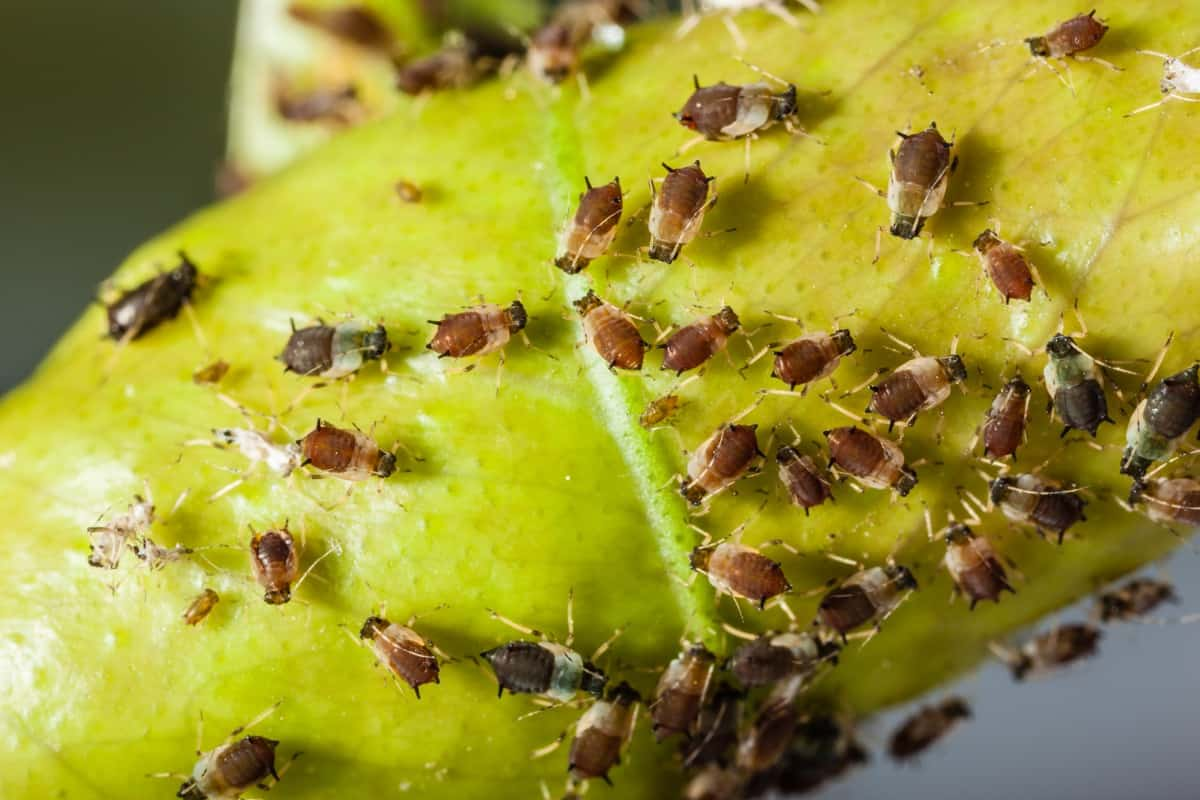
They are particularly fond of new growth and can quickly weaken and even kill a plant if left unchecked. Aphids can be a real nuisance, and it’s important to know what plants naturally repel them. By planting the right combination of flowers, herbs, and shrubs, you can protect your garden from being overrun with aphids while still having beautiful foliage. The next time you want to add color or texture to your outdoor space, consider these natural pest repellents. Not only will they look great, but they’ll also protect your other plants.
16 best plants that naturally repel aphids
Garlic
Aphids are the most common garden pests and are especially attracted to soft, new plant growth. While there are many chemical ways to control aphids, some gardeners prefer more natural methods. Garlic is a powerful aphid repellent. It contains sulfur, a natural element that deters many insects. You can insert cloves into the soil around infested plants. To make a Garlic spray, blend several Garlic cloves with water and strain the solids. Then, use the spray on aphid-infested plants as needed.
Catnip
Aphids can also spread harmful viruses from one plant to another. Luckily, several plants naturally repel aphids. One of the most effective is Catnip. Catnip has a strong, pungent odor that aphids find offensive. You can also make a homemade spray by steeping fresh Catnip leaves in boiling water for several minutes and then spraying it on your plants. Planting Catnip around the perimeter of your garden will help keep aphids away from your precious plants.
In case you missed it:
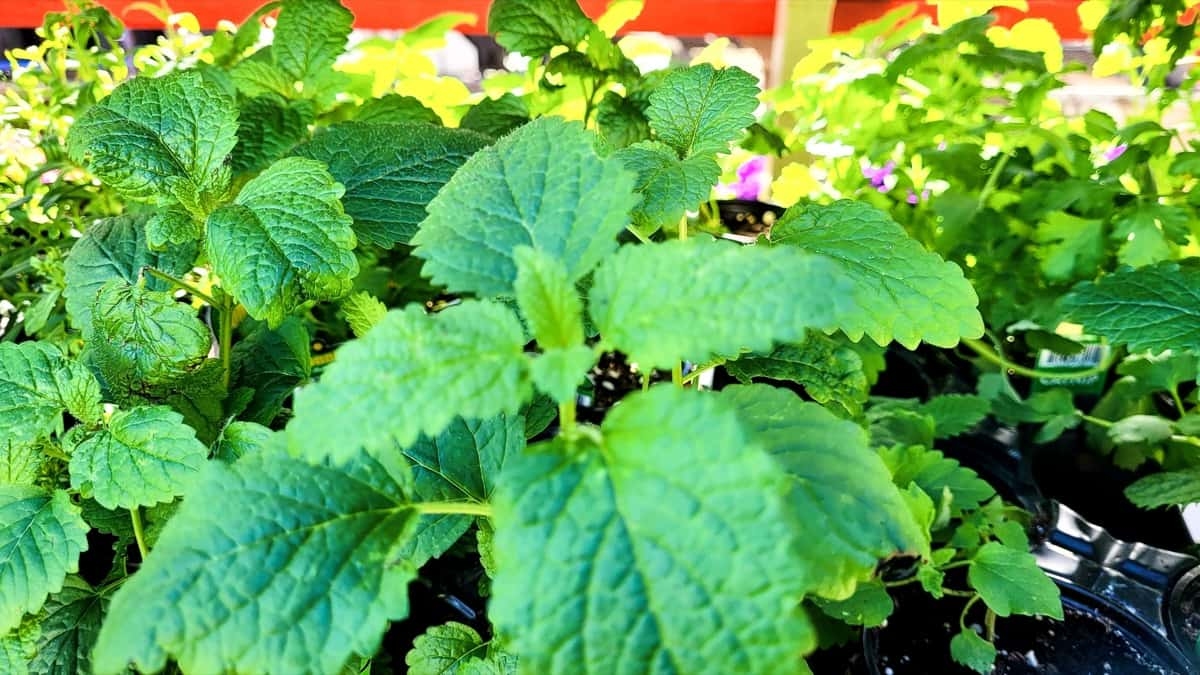
Rye
Rye also has aphid-repelling properties. When planted around the perimeter of your garden, it can help to keep aphids away. Rye has been used as a natural pest control method for centuries. When planted near aphid-prone plants, rye will help to keep these pests away.
Yarrow
Yarrow is a flowering plant that is commonly used in gardens and landscaping. The plant has a strong scent that repels aphids and other pests. Yarrow is easy to grow and care for, making it a popular choice for gardeners. Yarrow is also a powerful insect repellent that can keep aphids away from your plants. To use Yarrow as an aphid repellent, you can plant it in your garden or spray it using the dried herb. If you choose to plant a Yarrow, it will bloom from June to September and attract beneficial insects like bees and ladybugs to your garden.
You can also dry the herb and crush the leaves to make a powder, which can then be added to water to make a spray. This spray can be applied to your plants weekly or more often if necessary. Yarrow is a great option if you’re looking for a plant that naturally repels aphids. This perennial herb is easy to grow and maintain, and it’s also known for its ability to deter pests. Yarrow produces a strong, pungent aroma that many insects find offensive. The plant’s leaves are also covered in tiny hairs that make it difficult for aphids to land and feed.
Geraniums
Geraniums are a type of plant that naturally repels aphids. Geraniums also have a strong scent that helps to keep aphids away. Geraniums are one of the best plants to repel aphids naturally. Their strong scent confuses and repels aphids, and their dense foliage provides a physical barrier they cannot penetrate.
‘Geraniums also repel other garden pests, such as beetles, caterpillars, and slugs. Aphids are sap-sucking insects that can cause damage to plants. Geraniums are a type of plant that naturally repels aphids. The Geranium leaves’ strong scent is offensive to aphids and will keep them away from the plant.’Geraniums also repel other garden pests, such as beetles, caterpillars, and slugs. Aphids are sap-sucking insects that can cause damage to plants. Geraniums are a type of plant that naturally repels aphids. The Geranium leaves’ strong scent is offensive to aphids and will keep them away from the plant.
Marigold
Marigolds are one of the most effective plants for repelling aphids. The strong scent of Marigolds deters aphids from feeding on the plant, and the bright flowers also make it difficult for them to land. Plant Marigolds around your garden to keep aphids away. Marigolds are annual plants that grow to be about 2 feet tall.
In case you missed it: How to Grow Marigold Flowers from Seed to Harvest: A Planting Guide for Beginners
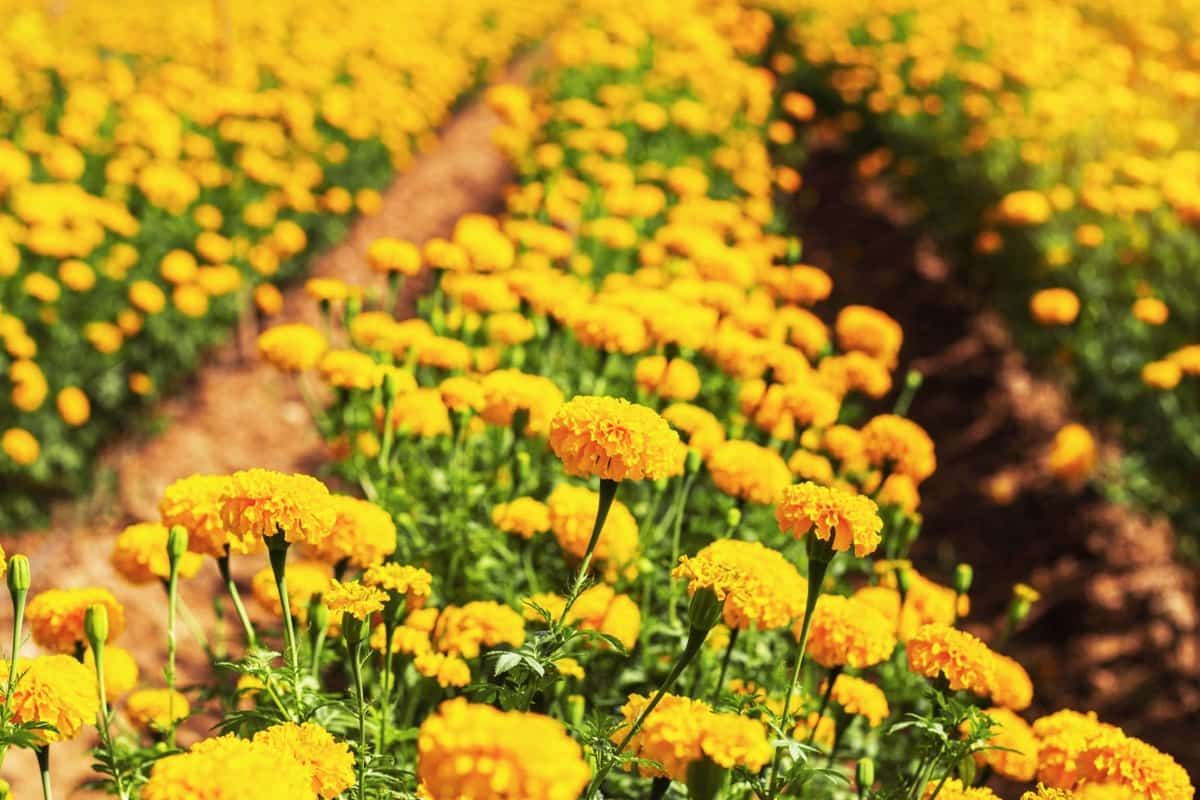
They have yellow or orange flowers and are often used in gardens as ornamental plants. Marigolds contain a chemical called pyrethrin, which is toxic to aphids. Pyrethrin is released from the flowers when they are crushed, and it can kill aphids on contact. Marigolds are commonly planted around vegetable gardens to help keep aphids away from the plants.
Chives
Chives are great plants around the garden as they naturally repel aphids. Aphids are sap-sucking insects that can cause damage to plants. Chives will help keep these pests away from your plants.
Onion
Onions are a great way to keep aphids away from your plants. The strong smell of Onions will deter aphids from getting too close to your plants. Onions emit a strong smell that aphids do not like and will avoid areas where Onions are present. You can plant Onions around the perimeter of your garden to help keep aphids away, or you can chop up an Onion and put it in a spray bottle with water to create a homemade aphid repellent.
Rosemary
Rosemary is a common herb that can be found in many kitchens. It has a strong, pungent aroma that many people enjoy. Rosemary also has natural insect-repelling properties. Aphids are small, pear-shaped insects ranging in color from black to green. They are often found feeding on the sap of plants.
In case you missed it: How to Grow Rosemary from Seed to Harvest: Check How this Guide Helps Beginners
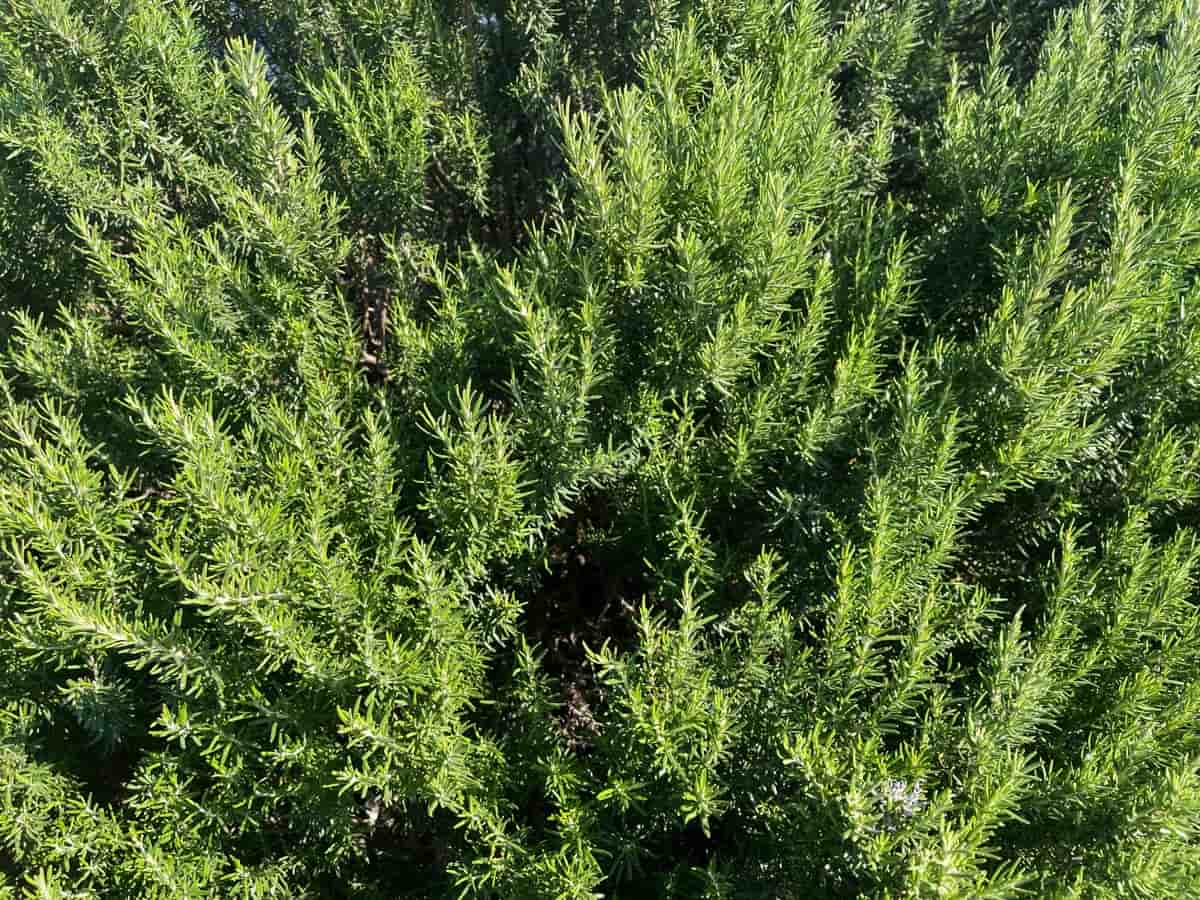
Rosemary oil is known to be an effective aphid repellent. Rosemary oil can prevent aphids from infesting plants when used as a preventative measure. To use Rosemary oil as an aphid repellent, add drops to a cotton ball and apply them to the affected area.
Parsley
Parsley is a great plant in your garden if you’re looking to repel aphids. Aphids are small insects that feed on plants by sucking the sap. This can cause damage to the plant and, in some cases, death. Parsley is known to be a natural repellent of aphids, so planting it near vulnerable plants can help keep them safe. Parsley is a popular herb known for its ability to repel aphids.
The strong smell of Parsley deters aphids from entering your garden, and the plant’s tough leaves make it difficult for them to penetrate. Parsley is also a good source of nectar, which attracts beneficial insects like ladybugs that help keep aphid populations in check.
In case you missed it: 11 Herbs for Hanging Baskets: Best List for Your Home Garden
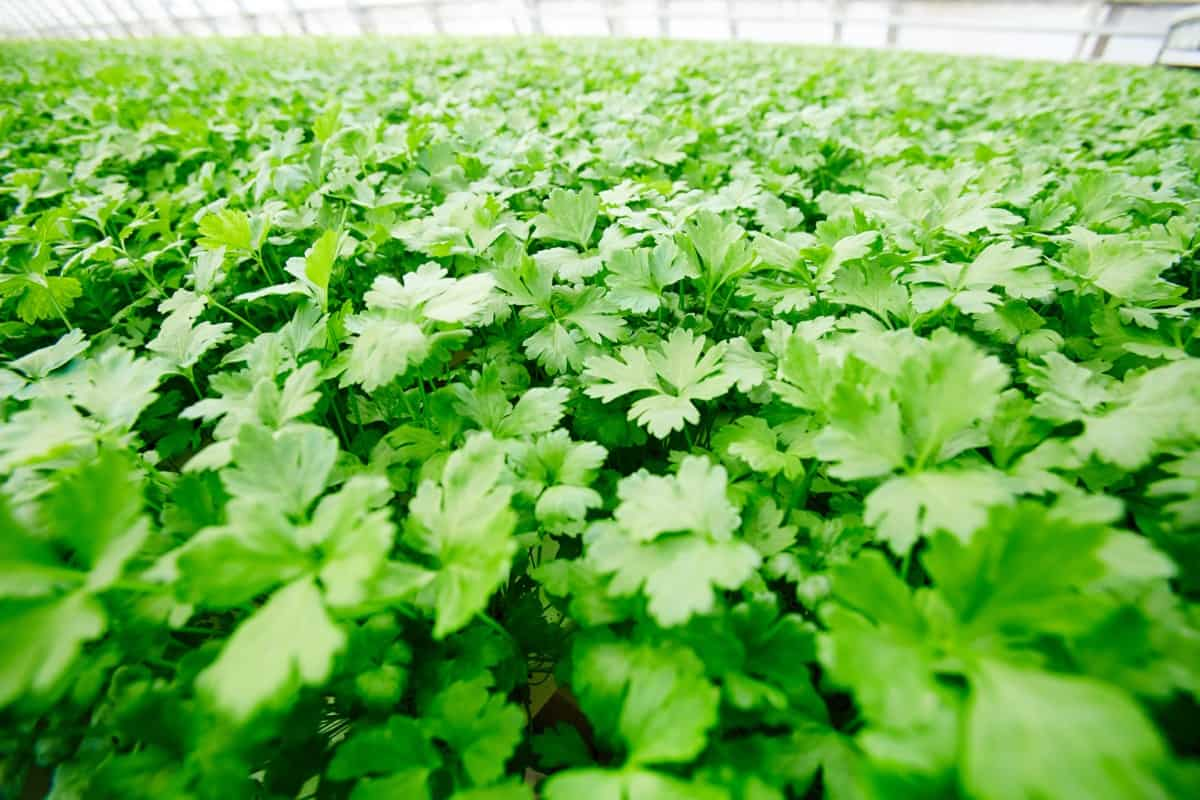
Eucalyptus
The leaves of most Eucalypts are covered with oil glands, and the volatile oils released by these glands give Eucalypts their characteristic scent. Eucalyptus oils have several uses, including as an insecticide. Eucalyptus oil is toxic to aphids and can be used as an insecticide against them. Mix 1-part eucalyptus oil with ten parts water, and spray it onto infested plants. This will kill any aphids that come into contact with it. You should test the mixture on a small plant area first to ensure it doesn’t damage the leaves.
Lavender
Not only is it beautiful and fragrant, but it also has natural insect-repelling properties. Aphids are soft-bodied insects that feed on the sap of plants. You can find it in large numbers on leaves and stems, and it can cause damage to your plants if left unchecked. Lavender oil is an effective way to repel aphids from your garden. Add a few drops to a water spray bottle and regularly mist your plants. You can make Lavender-infused vinegar for a few weeks by steeping fresh Lavender sprigs in white vinegar. This can be sprayed directly onto aphid-infested plants.
Mint
Aphids are the most common garden pests and can be very difficult to control. However, several plants naturally repel aphids, and Mint is one of them. You can plant Mint around the edges of your garden, grow it in pots, and place them around your plants. Mint will also help to repel other pests, such as whiteflies and cabbage loopers. In addition to repelling aphids, Mint also has several other benefits.
In case you missed it: 18 Common Mint Plant Problems: How to Fix Them, Solutions, and Treatment
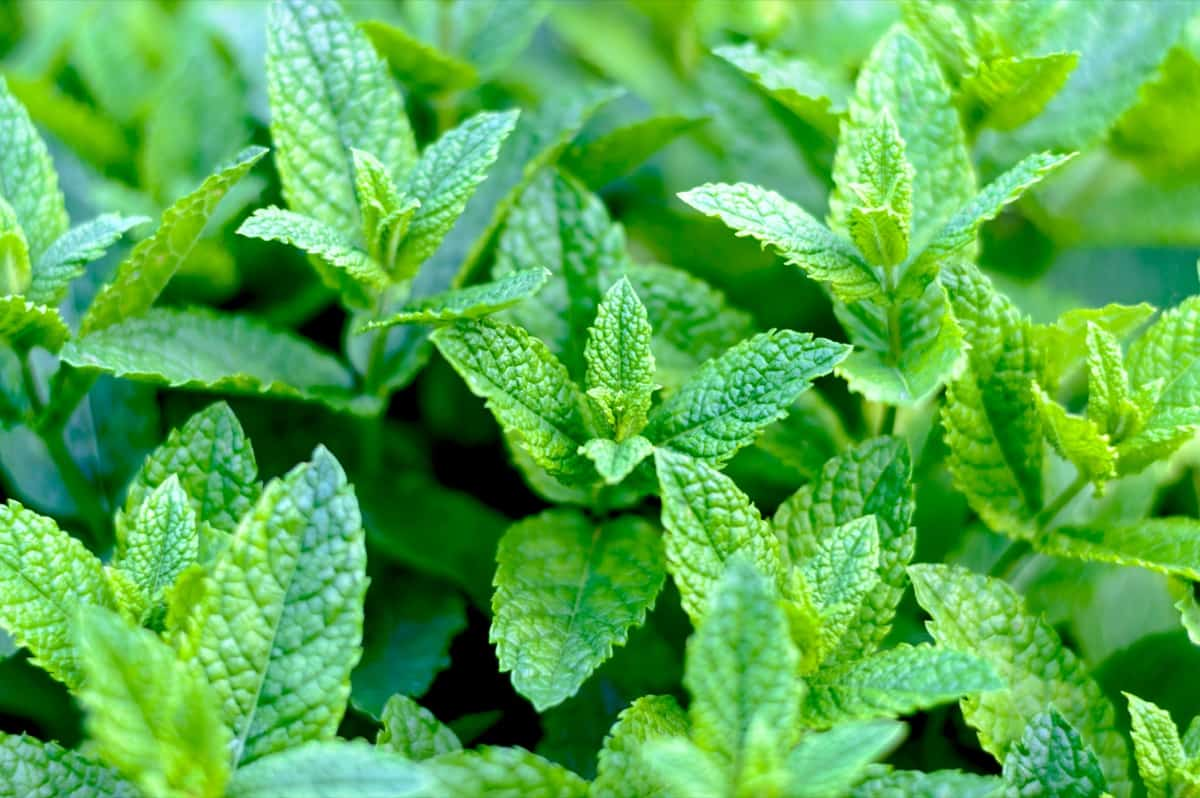
It is a great companion plant and can help deter rabbits and deer from your garden. Mint is easy to grow and spreads quickly, so you must keep an eye on it. Mint plants release a strong fragrance that deters aphids and other pests. You can grow Mint indoors, outdoors, in containers, or on the ground. To use Mint as an aphid repellent, crush a few leaves and sprinkle them around your plants. You can also make a Mint spray by adding crushed Mint leaves to water and spraying it on your plants.
Neem
Neem is a popular Indian herb used for centuries to repel pests. The oil from the Neem tree is highly effective at repelling aphids, as well as many other common garden pests. Neem leaves and seeds are used to make an oil that is effective in repelling aphids. Neem oil disrupts the aphid’s life cycle, which prevents them from reproducing. This makes it an excellent natural option for controlling aphids in your garden.
Sunflowers
If you’re looking for a beautiful plant to help repel aphids from your garden, consider planting Sunflowers. These tall plants produce large yellow flowers that are not only pretty to look at but also release a substance that repels aphids. Sunflowers are the best addition to any garden and the best plant for naturally repelling aphids.
However, Sunflowers’ thick leaves and stems make it difficult for aphids to penetrate, and the flowers produce a substance that repels aphids. So, Sunflowers are a great choice if you’re looking for a plant to help keep aphids away from your other plants.
Nasturtium
Nasturtiums are easy to grow and care for and make a great addition to any garden. Nasturtium is a great option if you’re looking for a plant that naturally repels aphids. Nasturtium is an annual flowering plant that is easy to grow and maintain. Nasturtium plants can be used as a natural insecticide to control aphid populations in your garden.
12 Plants that Repel Ants to Include in Your Garden
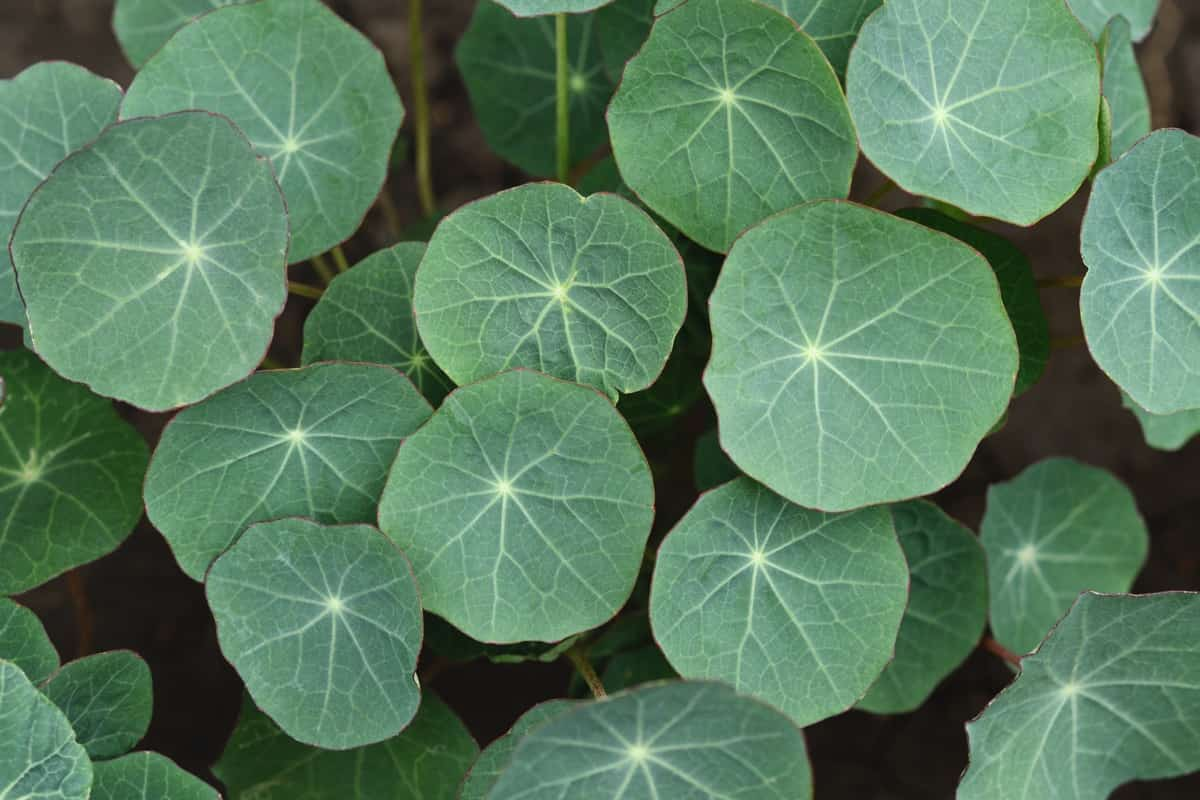
Conclusion
Aphids are the most common garden pests that can wreak havoc on your plants. These pesky bugs can be a nuisance, from stunting growth to destroying delicate flowers. But there’s good news: several plants naturally repel aphids, making them a great choice for any garden. In addition, natural remedies for aphids can be an effective way to eliminate them without using dangerous chemicals. Whether you opt for companion planting, introducing beneficial insects, or natural sprays and soaps, you will find the best solution for your garden.
- Growing Gold: Essential Techniques for Planting Pineapples
- How to Make Kalanchoe Plant Bushy: Home Remedies and Solutions
- 11 Reasons Why Your Gardenia is Not Blooming: Home Remedies and Solutions
- Eco Elegance: The Guide to Designing a Drought-Tolerant Landscape
- Gardening on a Slope: Strategies for Hillside Landscaping
- Nourish and Flourish: Top Organic Mulches for Thriving House Plants
- Everything You Want to Know about Indian Mogra Flower: Discover Uses and Growing
- Green Thumb Success: Expert Tips for Cultivating Greenhouse Pumpkins All Year Round
- Maximize Growth & Flavor: The Ultimate Guide to Companion Planting in Herb Gardens
- How to Control Rhododendron Problems Naturally: Home Remedies and Organic Ways to Fix Them
- Natural Magic: The Remarkable Benefits of Cinnamon for Plants
- Best Steps to Revive Dying Tulip with Natural and Organic Treatment
- 10 Reasons Why Your Angel Trumpet is Not Blooming: Remedies and Treatment
- How to Fix Periwinkle Leaf and Flower-Related Problems: Natural Remedies and Solutions
- How to Fix Zinnias Leaf and Flower Problems: Discover Natural and Home Remedies
- Organic Steps to Induce Lemon Tree Flowers: A Comprehensive Guide
- Bloom Booster: Crafting the Perfect Homemade Bougainvillea Fertilizer
- Optimizing Growth: A Guide to Applying NPK Fertilizer for Potted Plants
- 10 Best Homemade Fertilizers for Rubber Plant: DIY Recipes and Application Method
- How to Boost Female Pumpkin Flowers: Effective Steps for More Flowers and High Yields
- Transform Your Indoor Garden: Top Benefits of Pink Salt for Houseplants
- 10 Best Homemade Fertilizers for Peacock Plants (Calathea): Easy DIY Guide
- Unlock Blooms: 9 Reasons Why Your Potted Chrysanthemum is Not Blooming
- 8 Reasons Why Your Potted Hibiscus is Not Blooming: Fix it with Simple Solutions
- Unlock Blooms: 9 Key Reasons Your Potted Frangipani Won’t Flower
- 10 Reasons Why Is My Ice Plant Not Blooming: Remedies and Treatment
- 10 Reasons Why My Potted Hydrangea Not Blooming: Treatment and Remedies
- 10 Reasons Why is My Wisteria Not Blooming: Remedies and Treatment
- 10 Reasons Why is My Goldfish Plant Not Blooming: Remedies and Treatment
- Maximize Your Space: Ultimate Guide to Balcony Gardening with Grow Bags
- 10 Reasons Why Your Iris is Not Blooming: Remedies and Treatment
- 10 Reasons Why Your Anthurium Plant is Not Blooming: Treatment and Remedies
- 10 Reasons Why Your Aquaponic Plants Are Not Flowering: Remedies and Treatment
- 10 Reasons Why Your Agapanthus is Not Flowering: Remedies and Treatment
- Ultimate Guide to Brown Turkey Fig: Steps to Growing Brown Turkey Figs
- How to Grow Acai Berry: Propagation, Planting, and Care
Hi, my parsley (flat leafed) is teeming with greenfly this year and my nasturtiums were laden with black aphids last year. Is there any reason why this would be the case?
Thanks.